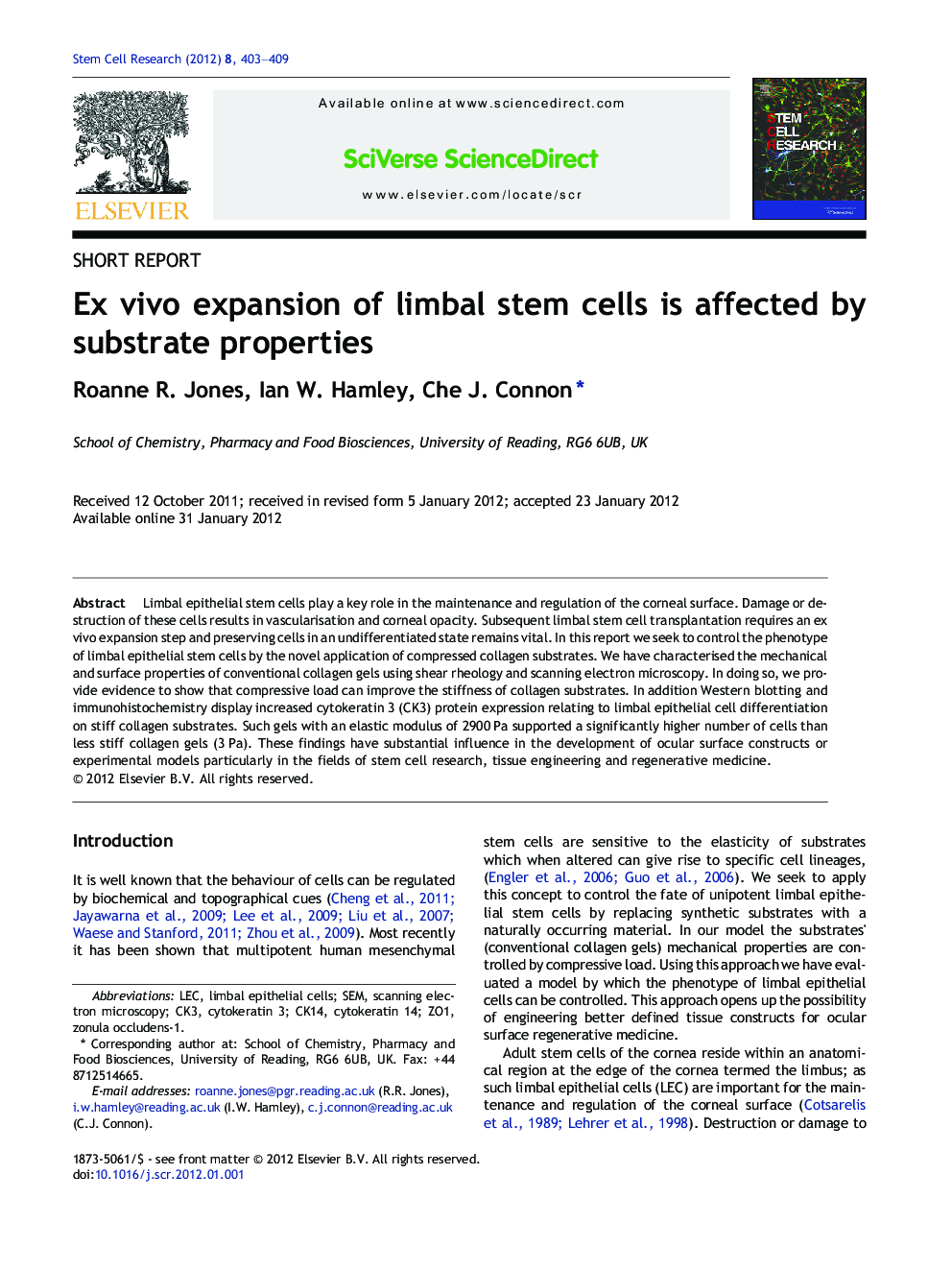| Article ID | Journal | Published Year | Pages | File Type |
|---|---|---|---|---|
| 2094284 | Stem Cell Research | 2012 | 7 Pages |
Limbal epithelial stem cells play a key role in the maintenance and regulation of the corneal surface. Damage or destruction of these cells results in vascularisation and corneal opacity. Subsequent limbal stem cell transplantation requires an ex vivo expansion step and preserving cells in an undifferentiated state remains vital. In this report we seek to control the phenotype of limbal epithelial stem cells by the novel application of compressed collagen substrates. We have characterised the mechanical and surface properties of conventional collagen gels using shear rheology and scanning electron microscopy. In doing so, we provide evidence to show that compressive load can improve the stiffness of collagen substrates. In addition Western blotting and immunohistochemistry display increased cytokeratin 3 (CK3) protein expression relating to limbal epithelial cell differentiation on stiff collagen substrates. Such gels with an elastic modulus of 2900 Pa supported a significantly higher number of cells than less stiff collagen gels (3 Pa). These findings have substantial influence in the development of ocular surface constructs or experimental models particularly in the fields of stem cell research, tissue engineering and regenerative medicine.
Graphical abstractFigure optionsDownload full-size imageDownload high-quality image (442 K)Download as PowerPoint slideHighlights► Compressed collagen gels have an increased level of stiffness. ► Increased substrate stiffness influenced limbal stem cell differentiation. ► Cells differentiated, stratified and proliferated on stiff collagen substrates. ► Substrate stiffness is an important parameter in the culture of limbal stem cells.
